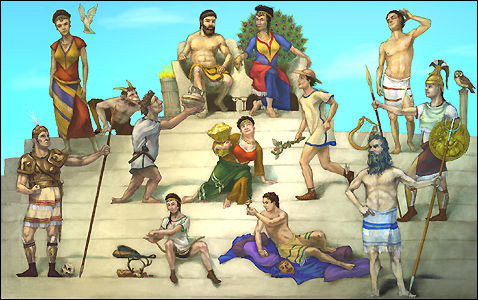
I can evaluate how influential civilizations are structured.
**Be sure to share with me or send me your Greek myth!
1. Starter: What are three ways that Ancient Greek culture is still present in modern societies? Make a list.
- Draw 3 columns on your paper
- Label them according to our big ideas: structure, patterns, & power
- As you watch take notes, categorizing the information by big ideas
3. Thank You, Ancient Greece:
**Add to the class' concept map the information for your gods/goddesses.
- Think about the contributions the Ancient Greeks have made to modern society.
- You are going to write a Thank You letter to the Ancient Greeks for these contributions.
- Choose 2 contributions.
- Include in your thank you how the contributions appeared in the Ancient Greek civilization, how they appear in modern society, and why these contributions are important.
- Choose from different characteristics of a civilization (developed cities/organized government, formalized religion, social classes/specialization of labor, art & architecture, record keeping & writing).
- You may need to do a little extra research!
- Write this inside a thank you card of your own design - incorporate characteristics of Ancient Greek culture in your design.
4. Ticket Out the Door: How does the big idea of structure relate to today’s lesson?


